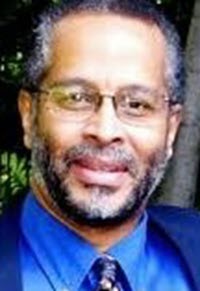Abstract
Excerpted From: R. Drew Smith, Racial-Ethnic Harm and Healing: Comparative National Mechanisms for Social Remorse and Repair, 17 Liberty University Law Review. 487 (Spring, 2023) (88 Footnotes) (Full Document)
 The enormous personal and social costs of American racism have been outlined eloquently and in detail by a wide variety of leaders and commentators, but Americans are sharply divided about how far to go in acknowledging its harms and in pursuing repairs in the interests of justice and social healing.
The enormous personal and social costs of American racism have been outlined eloquently and in detail by a wide variety of leaders and commentators, but Americans are sharply divided about how far to go in acknowledging its harms and in pursuing repairs in the interests of justice and social healing.
A 2021 Pew Research Center study shows, for example, that while 90% of Americans believe racial equality has progressed in recent decades, only 42% of white respondents, as compared with 78% of black respondents, indicated “a lot more needs to be done” to ensure equality. Further, only 22% of respondents identifying as Republicans, as compared with 74% identifying as Democrats, felt “a lot more need[ed] to be done” toward racial equality. There is agreement among respondents that racial harms have occurred and that helpful correctives have been pursued, but there is clear disagreement along racial and ideological lines about acceptable levels of societal costs in pursuing any necessary correctives.
Demographic alignments on these issues (and their implications for building community) carry over into the American religious realm as well. According to a 2022 Public Religion Research Institute (PRRI) measurement of American attitudes on race--including on matters such as “the impact of discrimination on African American economic mobility, the treatment of African Americans in the criminal justice system, ... and whether racism is still [a] significant problem today”--white religious groups scored highest on this “structural racism index.” White evangelicals scored highest of all at 0.64 correlation, and white Catholics and white mainline Protestants scored 0.55.
This data stands against a backdrop of racial reconciliation initiatives by white Christians in the U.S. since the 1950s, including formal acknowledgments within white evangelical communions of their historical complicity with racism. The National Association of Evangelicals led the way in this regard during the 1950s. Much later, during the 1990s, the Southern Baptist Convention and the Pentecostal-Charismatic Churches of North America were among the first of the predominantly white evangelical denominations engaging in these formal acknowledgements. Nevertheless, these evangelical racial confessions remained largely disconnected from engaging in public policy advocacy supporting equal rights and opportunities. Instead, evangelical reconciliation efforts responded to the race problem largely as a matter of broken fellowship between racial groups that could be corrected by confessing past wrongs and integrating blacks more fully into the ecclesiastical life and structure of their denominations.
The present discussion examines tensions and divergences between attitudinal and structural-systemic approaches to interracial cooperation and alliance. Although focusing on theoretical frameworks of specific evangelical responses to racial problems, the lack of receptivity to structural-systemic racial correctives by white Christian communions within the United States in general (as suggested by the PRRI data) will be examined as well.
The following analysis also places United States frameworks of racial accounting within a broader global perspective by comparing United States approaches to racial repair and healing to approaches within two highly instructive contexts of historic racial-ethnic conflict--Rwanda and South Africa. What is of interest in these cases, and throughout the present discussion, is the potential social-healing benefits of formal expressions of remorse and acts of repair.
[. . .]
The existence of legal structures with governmental backing to adjudicate collective racial-ethnic injury and reparatory actions within Rwanda and South Africa stands in stark contrast to the absence of such governmentally-backed structures within the United States. Formal mechanisms and procedures for admissions of wrongdoing, for assessments of social trust and healing, and for measurements and metrics of social harm and repair produced measurable benefits--and in direct correlation to the rigorousness of their procedures and metrics. These contrasts in national approaches to accounting for wrongdoing and facilitating social healing seem instructive for anyone concerned with peace and reconciliation--and especially for the United States in its efforts to address persistent racial-ethnic struggles within its context.
Actions U.S. churches have undertaken toward acknowledging racial harm and reforming institutional practices have been important and welcomed. Nevertheless, a fuller social healing likely remains largely out of reach without more concrete and systematic efforts to move beyond remorse to repair in response to “the years the locusts have eaten.”
The author is the Henry L. Hillman Professor of Urban Ministry and former Metro-Urban Institute Director at Pittsburgh Theological Seminary; a Co-convener of Transatlantic Roundtable on Religion and Race; and holds a research appointment at the Institute for Gender Studies at University of South Africa. As a political scientist and Baptist minister, he works at intersections of Christianity and public life.


